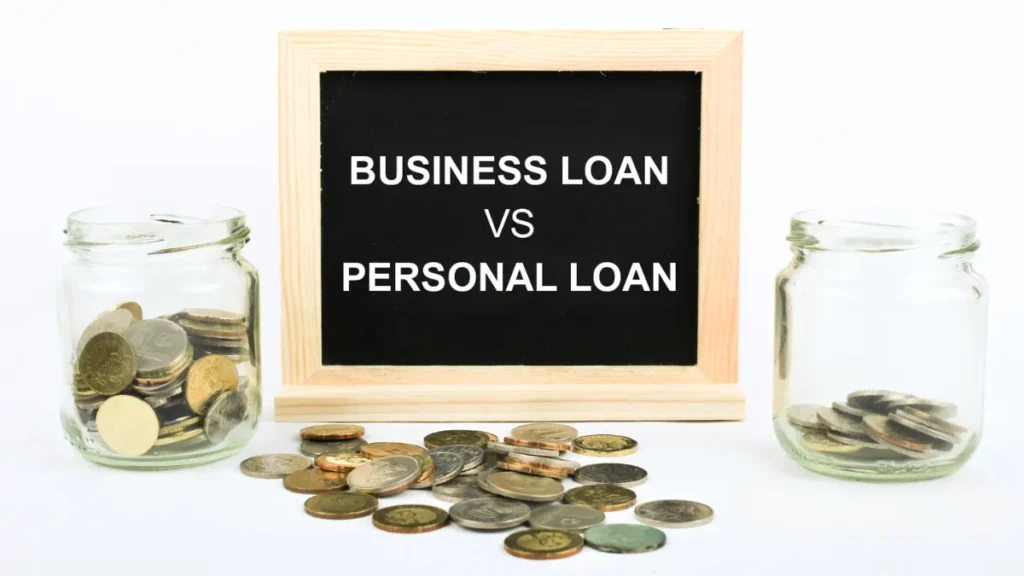In 2025, choosing between a business loan and a personal loan can be a crucial decision that impacts your financial future and your business’s growth potential. Whether you’re an entrepreneur looking to expand operations or an individual needing funds for multiple purposes, understanding the difference between these two loan types can help you make an informed and strategic choice.
In this article, we’ll explore the key differences, benefits, drawbacks, eligibility requirements, and scenarios where one may be more suitable than the other.
What is a Business Loan?
A business loan is a type of loan specifically designed to fund business-related expenses. This may include startup costs, equipment purchases, payroll, expansion, marketing, or working capital. It is issued to a business entity or an individual acting in a business capacity.
Key Characteristics:
- Offered for business-related needs only
- Generally higher loan amounts
- Requires business financial documents
- May be secured or unsecured
- Typically has business-friendly repayment terms
What is a Personal Loan?
A personal loan, on the other hand, is a general-purpose loan borrowed by an individual. The borrower can use it for various needs, such as home renovation, medical emergencies, education, weddings, travel, or even business purposes if allowed by the lender.
Key Characteristics:
- Issued to an individual
- Requires minimal documentation
- Usually unsecured
- Used for any personal financial requirement
- Quicker approval process
Business Loan vs Personal Loan: Key Comparison Points
Let’s dive into the side-by-side comparison of business loans vs personal loans across multiple categories.
1. Purpose of the Loan
| Criteria | Business Loan | Personal Loan |
|---|---|---|
| Primary Use | Business-specific expenses | Any personal or general-purpose expense |
| Flexibility of Usage | Restricted to business activities only | Highly flexible; can be used for almost anything |
2. Loan Amount
| Criteria | Business Loan | Personal Loan |
|---|---|---|
| Loan Size Range | Generally higher limits (₹5 lakhs to ₹5 crore or more) | Lower loan limits (₹50,000 to ₹25 lakhs) |
| Depends On | Business revenue, age, credit score, etc. | Individual’s income, credit score, liabilities |
3. Interest Rates
| Criteria | Business Loan | Personal Loan |
|---|---|---|
| Typical Interest Range | 9% – 18% | 10% – 24% |
| Based On | Business health, tenure, creditworthiness | Individual’s credit score and income stability |
4. Loan Tenure
| Criteria | Business Loan | Personal Loan |
|---|---|---|
| Repayment Term | 1 – 10 years | 1 – 5 years |
| Flexibility | Often negotiable based on business requirements | Relatively fixed |
5. Eligibility Requirements
Business Loan Eligibility:
- Business registration proof
- Minimum business vintage (1-3 years)
- Financial statements
- GST returns
- Income tax returns
Personal Loan Eligibility:
- Age between 21-60
- Stable monthly income
- Good credit score (650+)
- Valid ID and address proof
6. Documentation Needed
Business Loan:
- Business PAN & address proof
- Bank statements
- Profit & loss statements
- Company registration
- Business plan (sometimes)
Personal Loan:
- PAN & Aadhar card
- Salary slips or IT returns
- Bank statements
- Address proof
7. Processing Time
| Criteria | Business Loan | Personal Loan |
|---|---|---|
| Approval Time | 3–10 working days | 1–3 working days |
| Disbursement | May take longer due to document verification | Faster processing due to minimal documentation |
8. Tax Benefits
- Business Loan: Interest paid may be tax-deductible as a business expense.
- Personal Loan: No direct tax benefits unless used for home renovation or education.
When Should You Choose a Business Loan?
A business loan is ideal when:
- You want to expand your business or open a new branch
- You need to buy commercial equipment or machinery
- You’re hiring staff or scaling operations
- You need working capital to cover operational expenses
- You want to keep your personal and business finances separate
When Should You Choose a Personal Loan?
A personal loan makes more sense when:
- You need urgent funds for medical, travel, or education expenses
- You are self-employed and don’t qualify for a business loan
- You need flexibility in using the loan amount
- You want a quick and hassle-free approval process
- The loan amount is relatively small
Advantages of a Business Loan
- Larger loan amounts available
- Tailored for business growth
- Possible tax benefits
- Builds business credit profile
- More flexible repayment terms for established businesses
Advantages of a Personal Loan
- No need for business documentation
- Faster approval and disbursal
- Use for any purpose
- Usually doesn’t require collateral
- Ideal for individuals or new entrepreneurs without financial history
Disadvantages of a Business Loan
- Lengthy documentation process
- May require collateral
- Longer approval timelines
- Tougher eligibility for new businesses
Disadvantages of a Personal Loan
- Higher interest rates for some borrowers
- No tax benefits in most cases
- Smaller loan amounts
- Can affect personal credit if not repaid on time
Real-Life Scenarios in 2025
Scenario 1: Startup Expansion
Ravi is running a food delivery business and wants to invest in a logistics app and new delivery bikes. A business loan helps him with larger funding, and the interest becomes a tax-deductible expense.
Scenario 2: Urgent Medical Expense
Megha, a salaried individual, needs ₹4 lakhs urgently for her father’s surgery. She applies for a personal loan, gets it disbursed in 48 hours, and avoids paperwork delays.
Scenario 3: Freelancer With No Business Proof
Amit, a freelance designer, wants a laptop and home-office setup. Since he lacks a registered business, he opts for a personal loan and repays over two years.
How to Decide Between the Two?
Ask yourself:
- What is the loan’s purpose?
- Can your business support a loan repayment?
- Do you have all the documents for a business loan?
- How urgently do you need the funds?
- Will the loan be used entirely for business?
If it’s business-related and you have proper documentation, go for a business loan. For general or small, urgent needs, a personal loan might be more appropriate.
Conclusion
In 2025, both business loans and personal loans offer significant value—but for very different purposes. Business loans cater to growth, scalability, and professional expansion, while personal loans offer flexibility and speed. Before applying for either, evaluate your financial goals, loan purpose, eligibility, and repayment capacity.
Choosing the right loan not only ensures smoother repayment but also keeps your finances in balance—whether personal or professional.
Frequently Asked Questions (FAQs)
Q1: Can I use a personal loan for business purposes?
Yes, some lenders allow it, but it’s always best to check the terms. Be aware that tax benefits won’t apply.
Q2: Which has a lower interest rate—business loan or personal loan?
Usually, business loans have slightly lower interest rates, especially if backed by collateral or strong financials.
Q3: Can a startup get a business loan?
Startups may find it harder due to lack of financial history, but options like unsecured business loans or startup-specific products are available.
Q4: Will a personal loan affect my credit score?
Yes, personal loans impact your personal credit profile. Timely payments improve your score; missed ones can harm it.
Q5: Is collateral required for business loans?
Not always. Some are unsecured, but secured business loans offer better terms and higher amounts.



